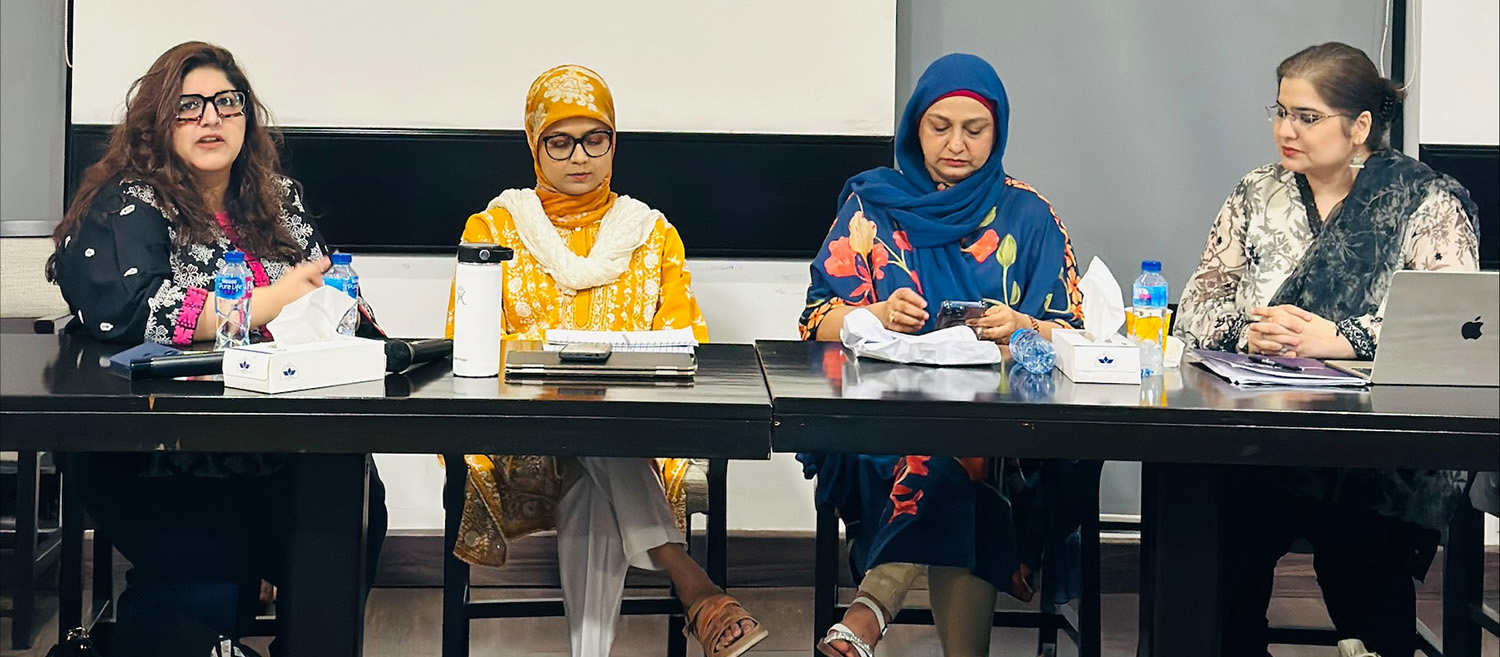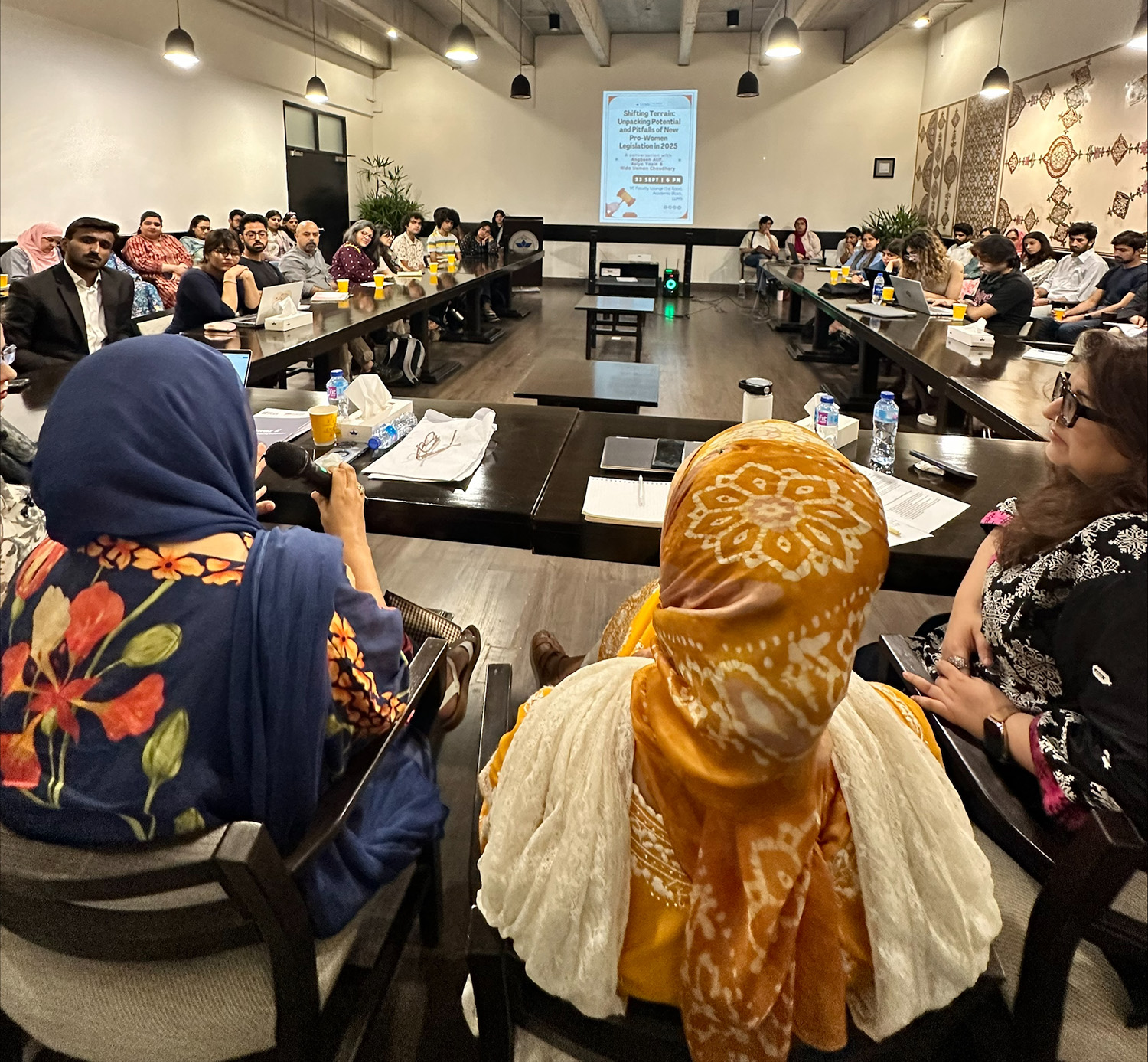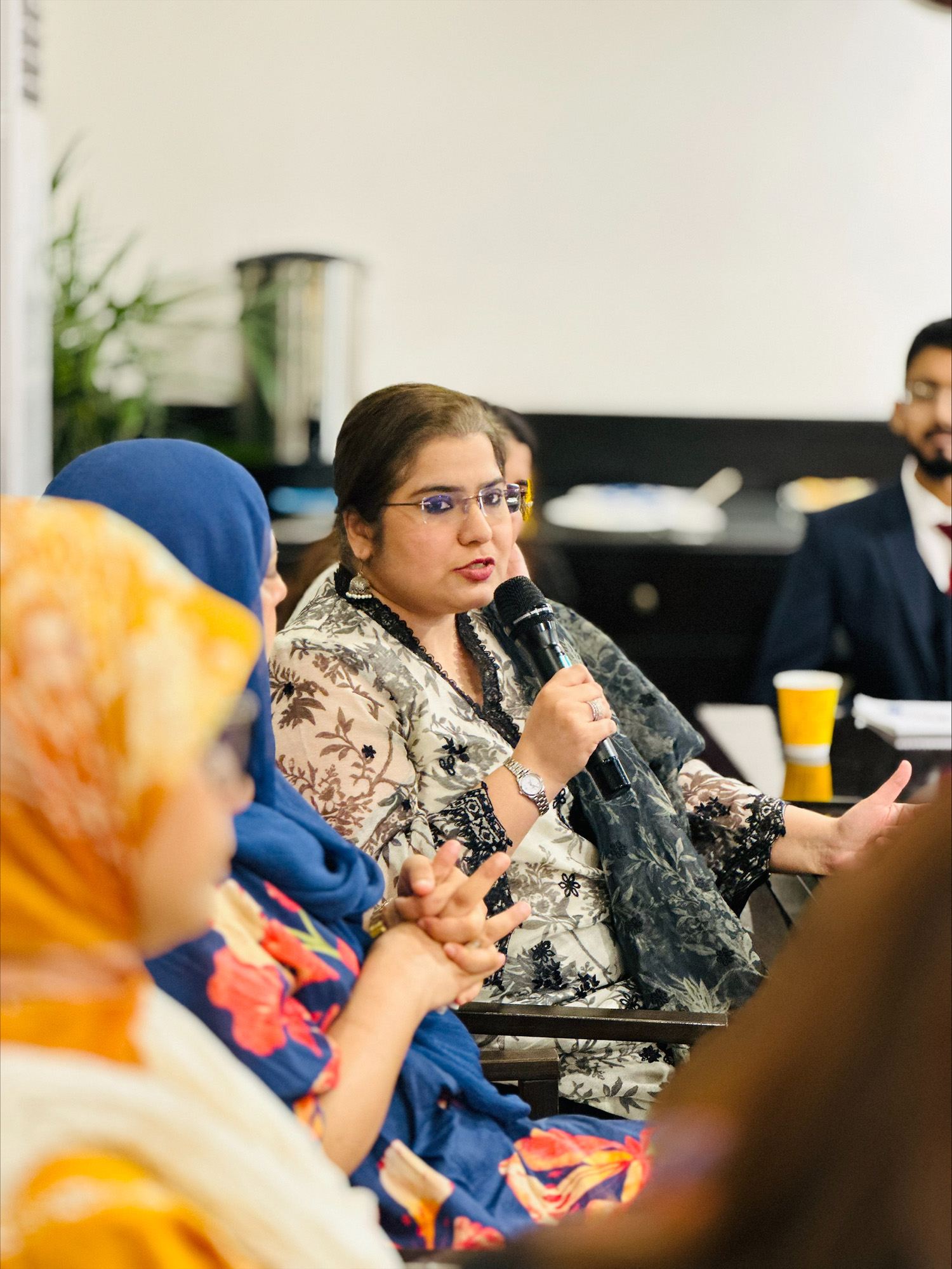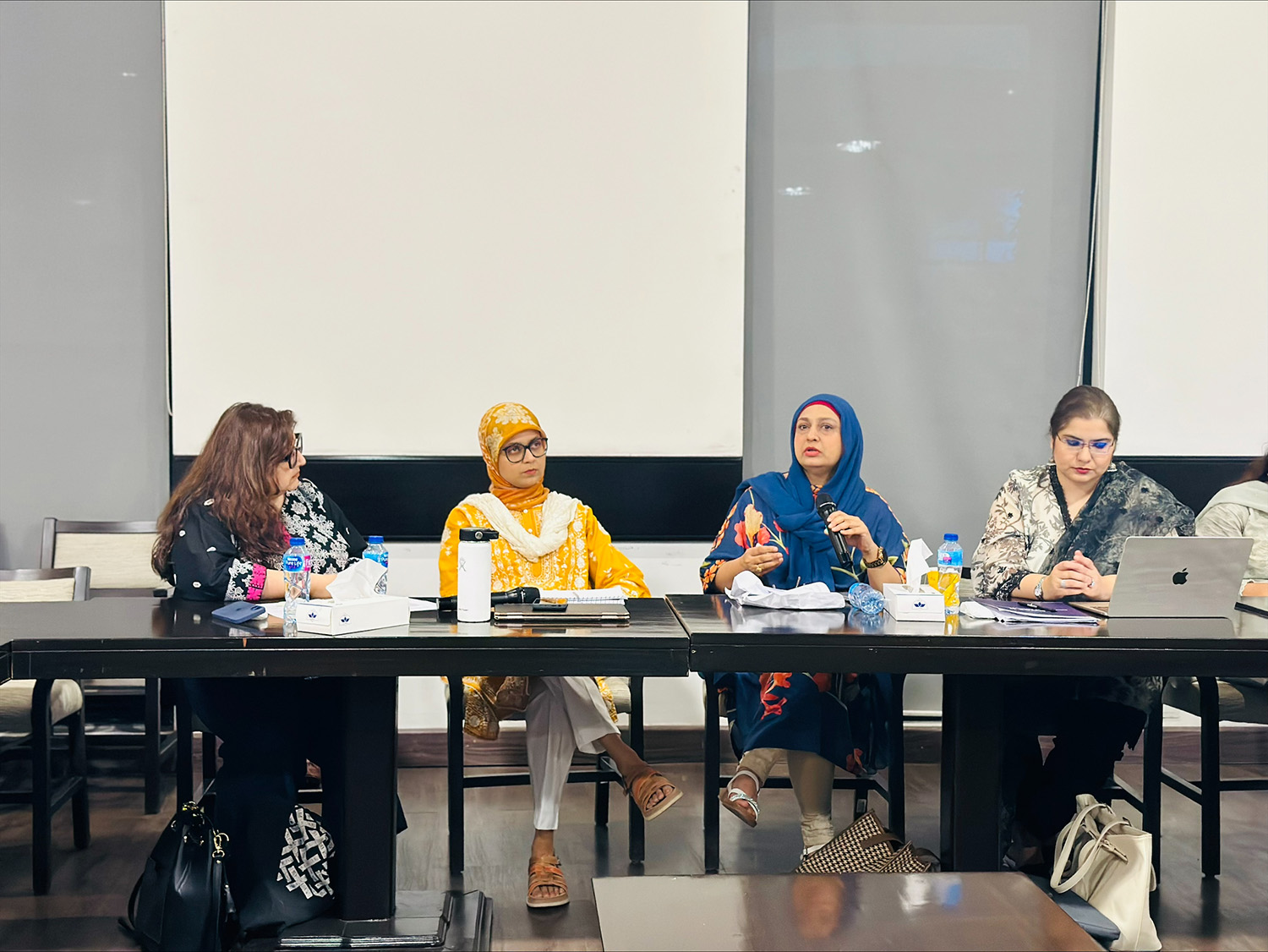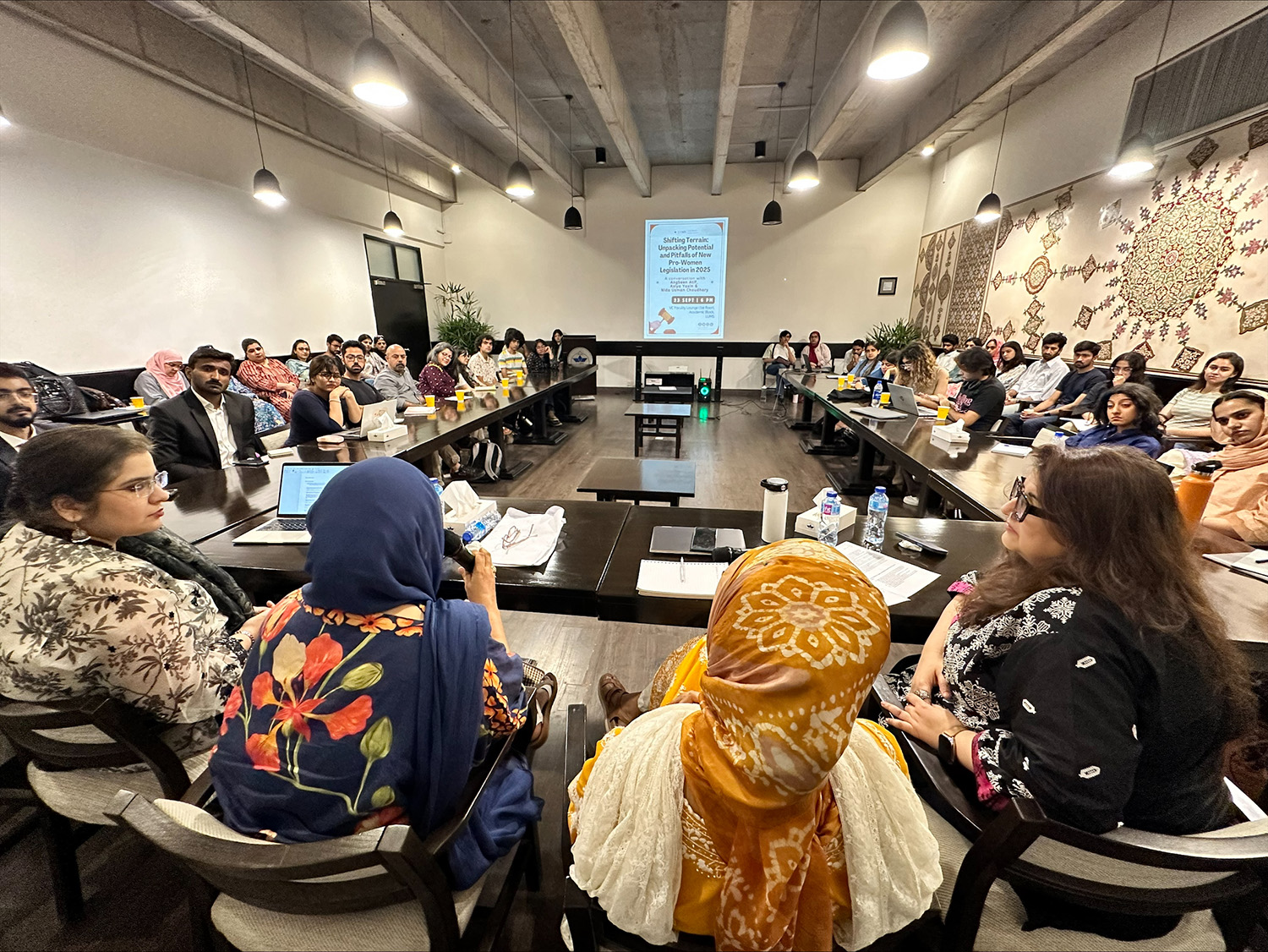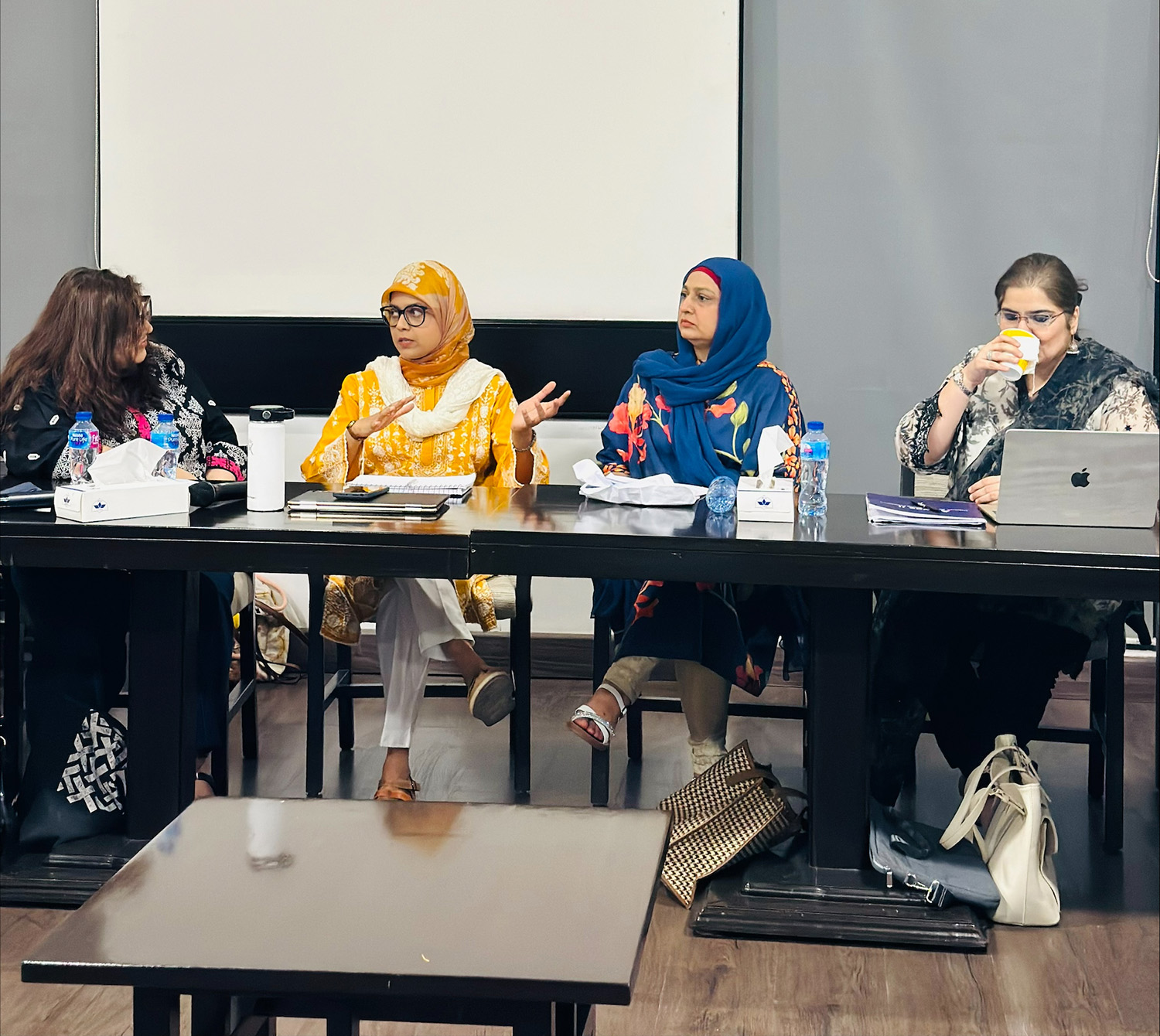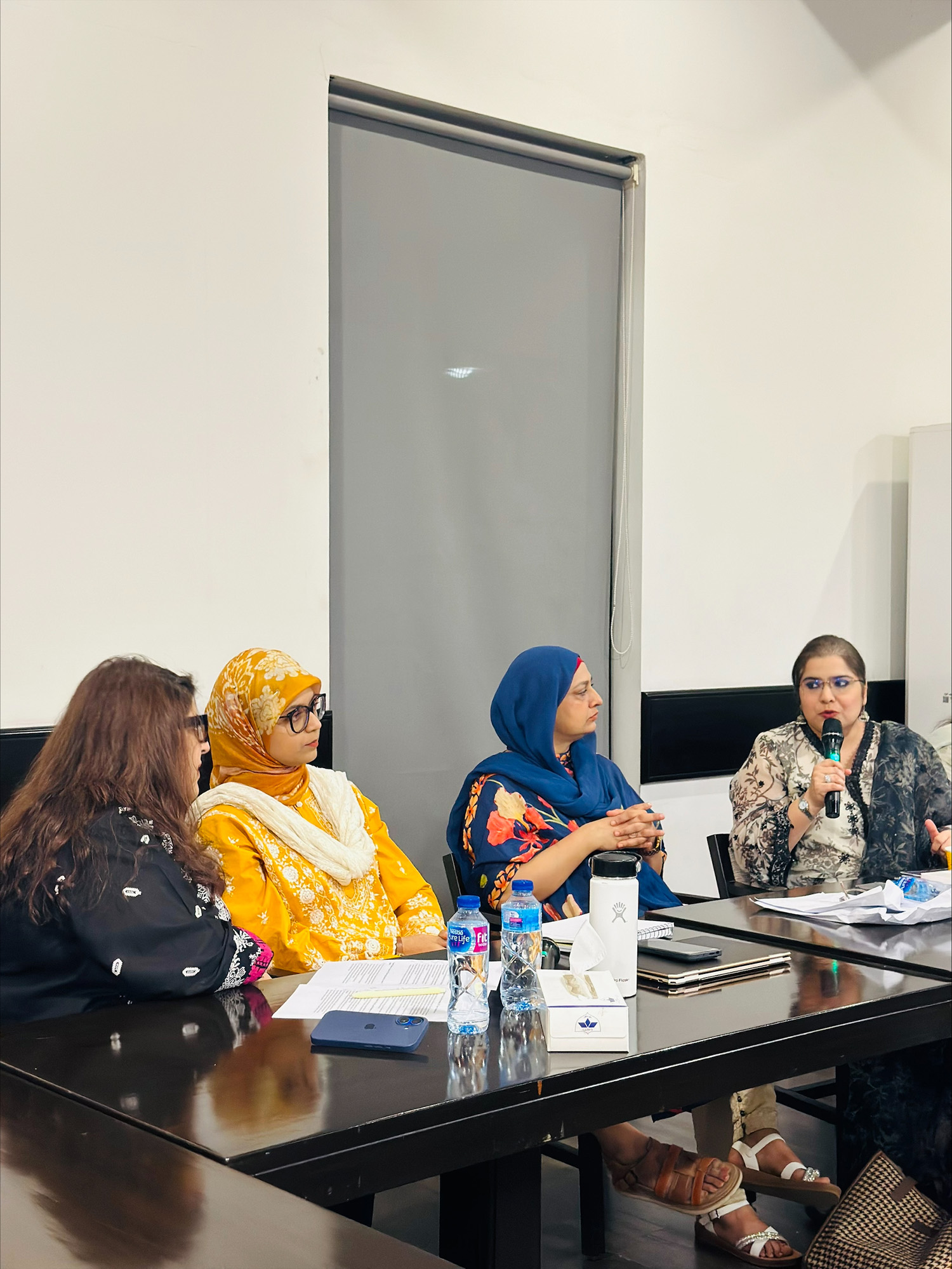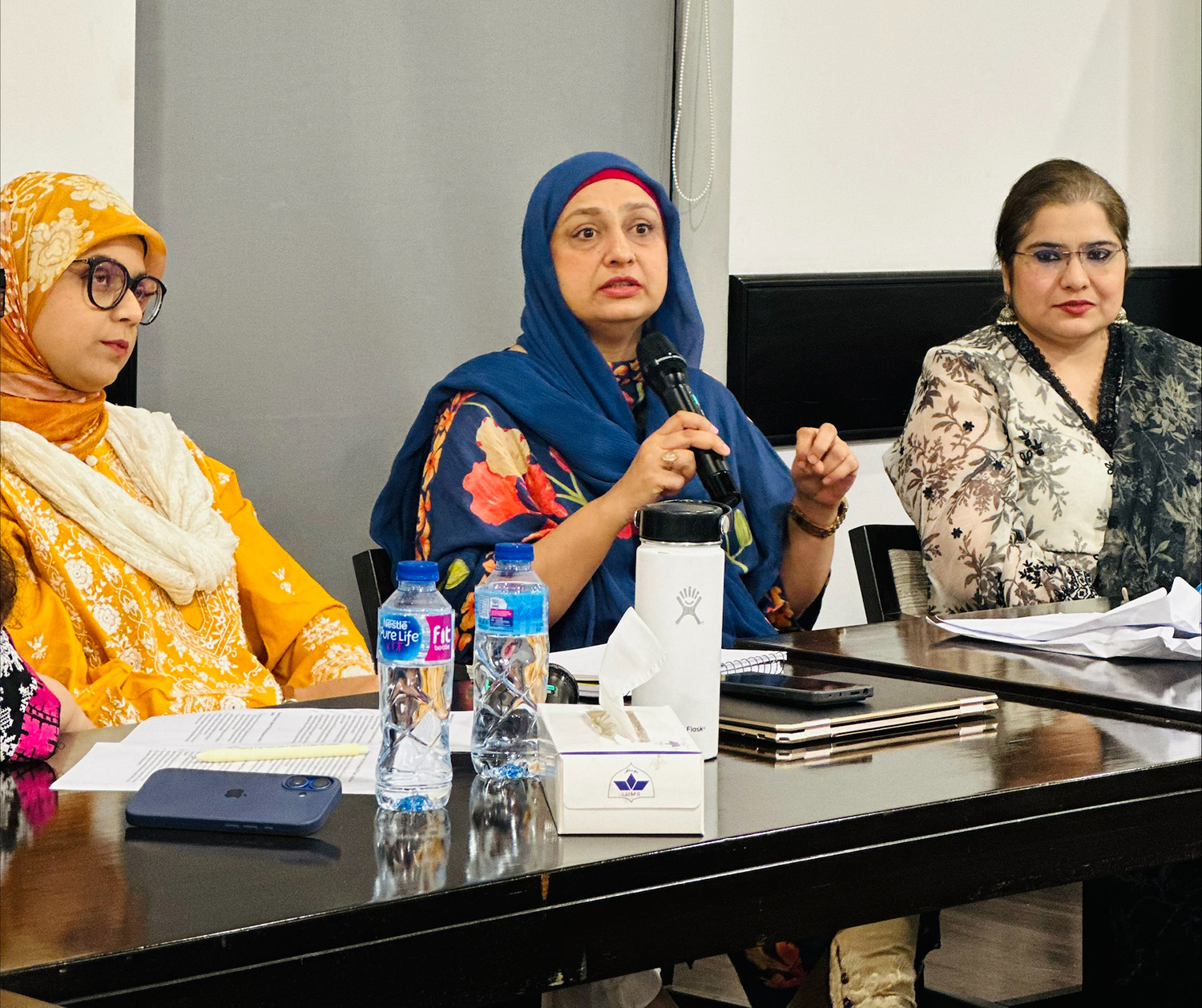Abstract
The year 2025 has been pivotal for legal measures aimed at reshaping women’s lives in Pakistan. From province-level controls on substances used in gendered violence to new statutory efforts to end underage marriage and strengthen workplace safeguards, major reforms are underway. Policy measures and rulings are also highlighting women’s rights to inheritance, property, and pensions. This panel talk brought together leading female legal experts to assess what these measures achieve, whom they reach, and how enforcement or articulations of the law may limit their promise. We will explore why these reforms were needed, the gaps they address, and the bureaucratic and policy steps required for effective implementation. Key developments include the Islamabad Capital Territory Marriage Restraint Act (raising the legal age to 18 with new enforcement mechanisms), Punjab’s Acid-control law, inheritance enforcement proposals, constitutional amendment efforts to ensure women’s representation, and evolving case law on workplace harassment and gender-based violence. The discussion evaluated gaps, consequences, and strategic opportunities for turning statutory promises into lived safety and autonomy for Pakistani women.

